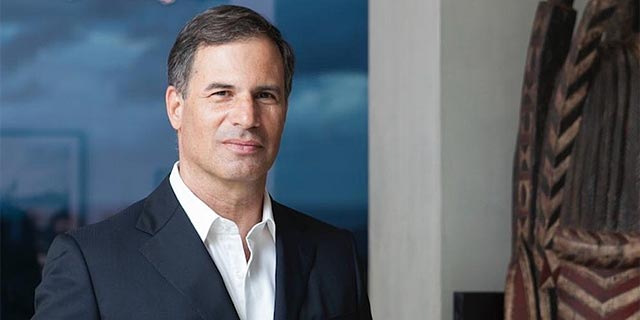
“The work we’ll do in space will closely relate to our life on Earth,” says Israel’s first private astronaut
Eytan Stibbe discusses his upcoming mission during Israel Space Agency’s opening event in marking Israeli Space Week
Yafit Ovadia | 08:56, 25.01.21
During the opening events of Israeli Space Week, as part of the 16th International Ilan Ramon Conference, Israeli astronaut Eytan Stibbe spoke about his upcoming mission to the International Space Station (ISS) set to take place in October.
During the Ramon Science Communications Conference sponsored by the Ramon Foundation and Calcalist, which was held online due to Covid-19 restrictions, Stibbe related that former NASA astronaut Garrett Resiman was partially behind the inspiration to send Stibbe to space. Reisman, a former consultant at SpaceX was head of the company’s Dragon spacecraft program. “When I called to wish him success, he said you’re going next. It seemed like a dream back then, but suddenly this mission will take place in a year from now.”
Aside from beginning a rigorous training regime, Stibbe, who will be the second Israeli in space, described how he is preparing himself mentally for the mission. Being a founding partner of the venture capital fund, Vital Capital, he relayed how he is using the tools he acquired through the field of impact investing for his mission.
“I’ve spent many years providing tools to undeserved communities and building infrastructure. And this is true for my mission as well, I’m trying to have the largest impact on society by defining clear objectives and measurable results.”
He defined those as:
- Innovation - This is not merely technological, but putting the focus on space, and relaying how this can relate to all types of activities, whether they be academic research, storytelling, the arts, or anything that inspires people to dream or pursue the impossible.
- Education - By getting the younger generation involved in STEM studies or in creative activities, it will drive them toward believing that missions as difficult as these can be achieved. This in turn will grow larger pools of scientists.
- Cooperation aboard the ISS - Last year, the ISS celebrated 20 years of cooperation and the continuous presence of people being on the station, conducting experiments. He hoped that this would continue.
- Initiation - Although initially governments finance this sector, he explained that the private sector is heading toward a takeover of this field.
- Collaboration between government agencies and Israel - Israeli startups, he noted, don’t necessarily get international recognition or the chance to break into sectors such as space tech as other startups do, so he hopes that the mission - where he will take some of those experiments with him - will help boost the local Israeli space economy.